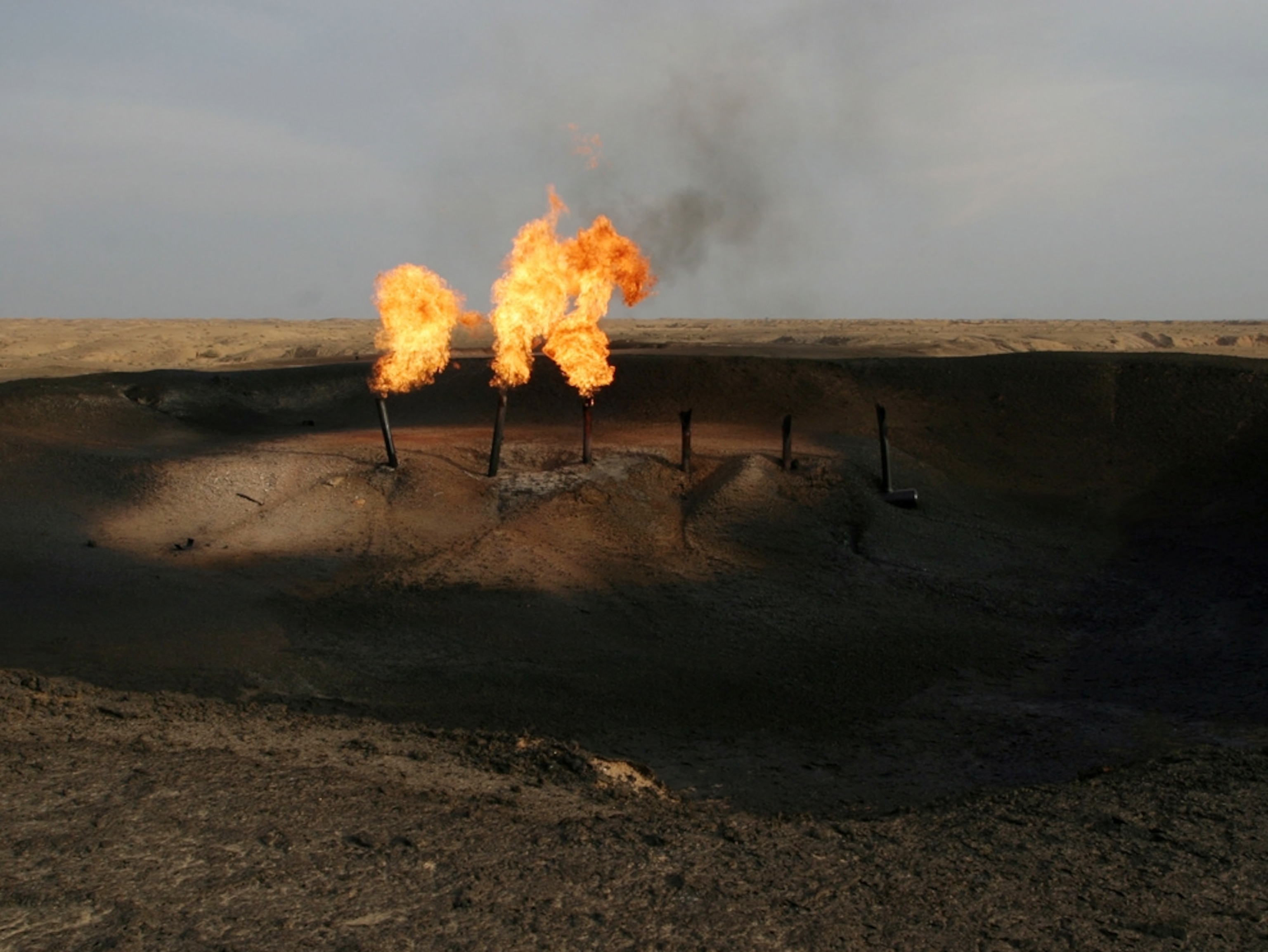
Has the World Already Passed “Peak Oil”?
New analysis pegs 2006 as highpoint of conventional crude production
This story is part of a special series that explores energy issues. For more, visit The Great Energy Challenge.
The year 2006 may be remembered for civil strife in Iraq, the nuclear weapon testing threat by North Korea, and the genocide in Darfur, but now it appears that another world event was occurring at the same time—without headlines, but with far-reaching consequence for all nations.
That’s the year that the world’s conventional oil production likely reached its peak, the International Energy Agency (IEA) in Vienna, Austria, said Tuesday.
According to the 25-year forecast in the IEA's latest annual World Energy Outlook, the most likely scenario is for crude oil production to stay on a plateau at about 68 to 69 million barrels per day.
In this scenario, crude oil production "never regains its all-time peak of 70 million barrels per day reached in 2006," said IEA’s World Energy Outlook 2010.
In previous years, the IEA had predicted that crude oil production would continue to rise for at least another couple of decades.
Now, because of rising oil prices, declines in investment by the oil industry, and new commitments by some nations to cutting greenhouse gas emissions, the new forecast says oil production is likely to be lower than the IEA had expected.
End of Cheap Oil
The projected flat crude oil production doesn’t translate into an immediate shortage of fuels for the world’s cars and trucks. IEA actually projects that the total production of what it calls “petroleum fuels” is most likely to continue steadily rising, reaching about 99 million barrels per day by 2035.
This growth in liquid fuels would come entirely from unconventional sources, including "natural gas liquids," which are created as a by-product of tapping natural gas reservoirs.
(Quiz: “What You Don’t Know About Natural Gas”)
The consequences for the world’s energy consumers of this increased reliance on natural gas liquids and other unconventional fuels are stark.
"The age of cheap oil is over," said Fatih Birol, IEA chief economist.
"If the consuming nations do not make major efforts to slow down the oil demand growth, we will see higher oil prices," Birol said, "which we think is not good news for the economies of the consuming nations."
(Related: “The End of Cheap Oil”)
IEA was set up by most of the world's industrialized countries after the 1970s world oil crises to analyze the world’s energy situation and advise them on policy.
The closely watched most-likely scenario, which the IEA calls the "New Policies Scenario," assumes that countries stick to the commitments they have made in the past couple of years to cut greenhouse gas emissions.
(Related: “Warming Solution: Just Stop Cold?”
But even under IEA’s so-called “business-as-usual” scenario, without the projected efforts to cut fossil fuel pollution, oil production would be significantly lower in 20 years' time than the IEA had forecast even just a few years ago.
Oil production might rise marginally under the "business-as-usual" scenario, the report said, but supplies would be short enough to send oil prices soaring to double today’s level.
Fighting Decline
A major reason for the rising prices and flatlining production is that for "the currently producing fields of crude oil, the production will decline," Birol said.
Today's active oil fields produce about 70 million barrels per day, but by 2035, he said, "they will produce less than 20 million barrels per day of oil."
Just to keep crude oil production flat would require much more production from new oil fields—including those discovered but not yet developed, and others still to be discovered.
The IEA forecasts that Saudi Arabia—the largest producer—would boost its production by 50 percent, and that Iraq would nearly triple its production.
Maintaining this plateau would require massive investment in the oil industry, the report estimated, about $8 trillion over the next 25 years.
Also, in the IEA's main scenario, production from "tar sands," also known as “oil sands,” found mainly in Canada and Venezuela, would triple in the next 25 years.
However, these unconventional sources are generally more expensive and harder on the environment, the IEA said.
Tar sands "mining operations have a large impact on the landscape," the report said, requiring forests to be cleared, and large "tailing ponds" to collect the toxic runoff from tar sands processing.
Tar sands have a bigger climate footprint than conventional oil, with larger greenhouse gas emissions for the whole life cycle, from "well-to-wheels," the new report said.
Barrel for barrel, the IEA said, oil from tar sands would create 5 to 15 percent more emissions of carbon dioxide (CO2), the principal greenhouse gas causing global warming.
(Related: “The Canadian Oil Boom”)
Looking at the reasons for the plateau in crude oil production, “it’s clear that it’s a mixture of above-ground and below-ground factors,” said Guy Caruso, former head of the U.S. Energy Information Agency, and now at the Center for Strategic and International Studies, a think tank in Washington, D.C.
“It’s partly geological resource limitations,” Caruso said. “There’s decline that we’re fighting in the older fields,” in which production has fallen faster than had been expected.
But there are also “areas like Venezuela, Iraq, Kazakhstan, and Nigeria, where we know the oil is there,” but political turmoil and other issues have kept production far below the potential, he said.
When all the factors are taken into account, the trend is toward rising oil prices, Caruso said. Oil-consuming nations can cope with this if the price rises smoothly, but he added, “what economies have a hard time dealing with is a spike like we had in 2008, when oil reached nearly $150 a barrel, and then dropped back down again.”
(Related: “Mining the Truth on Coal Supplies”)